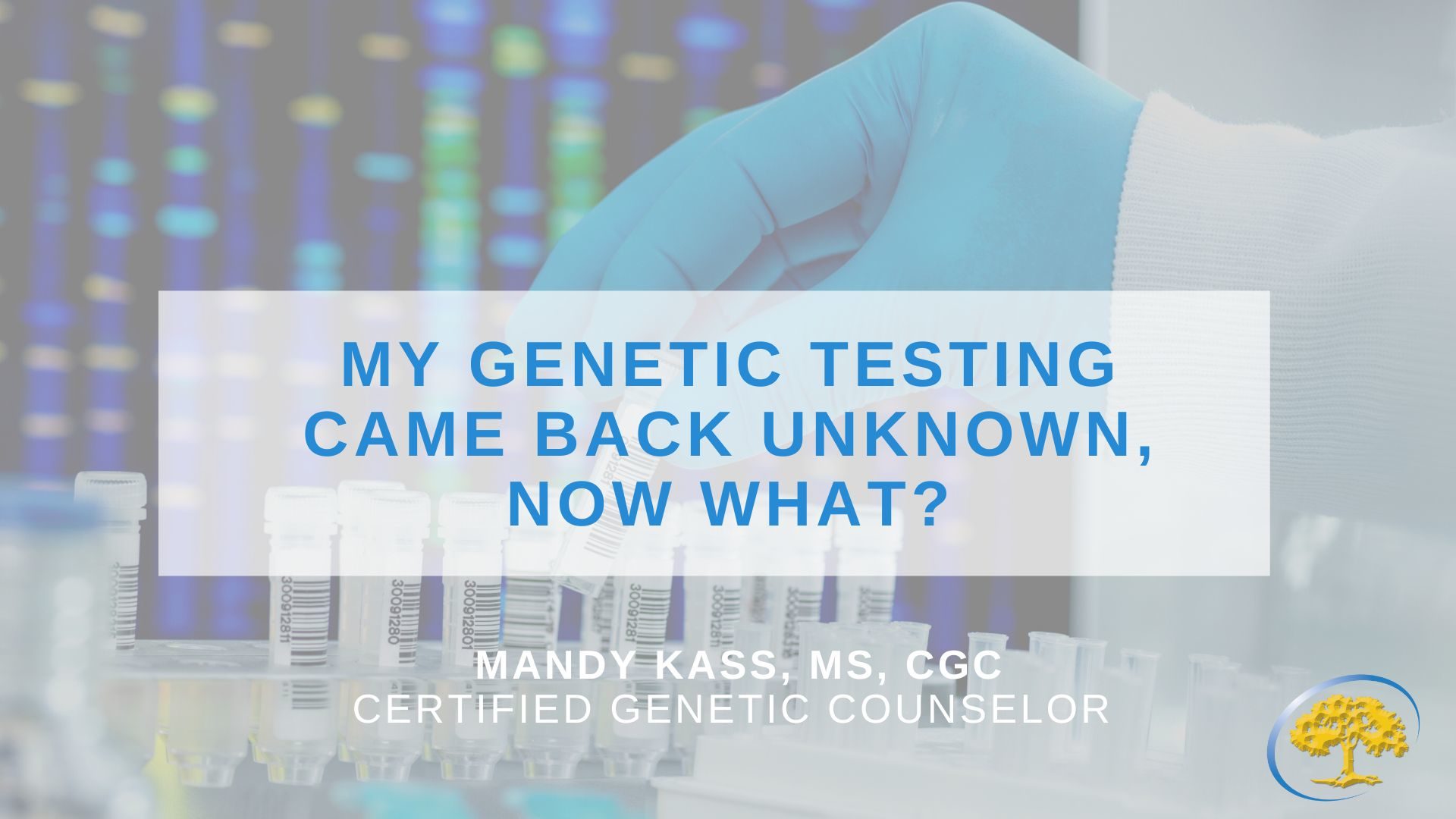
Posted 2 years ago
My Genetic Testing Came Back Unknown, Now What?
When you decide to pursue hereditary cancer genetic testing, you probably expect a straightforward yes or no answer: Yes, you have in inherited risk for cancer, or no, you do not. But it’s not always that simple. You may instead get an unknown result, which is what we call a variant of unknown significance, or a VUS for short.
Unlike harmful genetic variants (mutations) that cause an increased risk of cancer, or benign genetic variations that do not impact your risk for cancer, variants of unknown significance fall into somewhat of a gray area. Researchers do not yet have enough information about the specific variant to know whether they are harmful or not – hence the key word, unknown. Let’s break it down a bit further.
We all have changes in our DNA…a lot of them actually!
You may be surprised to learn that we all share about 99.9% of our DNA. Although that may sound like we are all basically identical, our genetic makeup actually consists of about 3 billion nucleotides, which are the molecules that essentially spell out our genes. So that 0.1% difference in our DNA is equivalent to about 3 million variations or spelling changes between all of us. And it’s these changes or variations in our DNA that make us all unique. The challenge, however, is determining what each of these variations mean. When a variation is identified that has not been seen often, or has limited or conflicting data, a lab will likely classify it as a variant of unknown significance.
Getting one of these VUS results back on a genetic test can often feel confusing or frustrating. But it is important to know you’re not alone! Variants of unknown significance are very common. The more genes that are included on a testing panel, the higher the likelihood that we may get one or more variants of unknown significance. In some cases, the odds of getting a variant of unknown significance on a hereditary cancer testing panel may be higher than 40%.
So what happens with these results?
When a VUS is identified, the lab that performed the test will continue to research the variation. Over time, they may be able to reclassify the variation. If this happens, they will send an amended report to your ordering healthcare provider. But here’s the most important point: Over 90% of variants of unknown significance that are later reclassified are determined to be benign genetic variations. This means that majority of these unknown variations are actually a completely normal part of your DNA that do not impact your cancer risk.
Because majority of these variants of unknown significance are likely to be benign gene variations, genetic counselors generally do not recommend making changes to your care based on these findings. Instead, we generally recommend making management decisions based on your personal and family history. However, it is important to note that broad statements about the management for individuals with a VUS result cannot be made and it is best to speak with your healthcare provider or genetic counselor about the implications of your genetic testing results.
Overall, it’s important to recognize that VUS results are common findings in genetic testing and in most cases, do not mean that you have an inherited risk for cancer. Although these findings can be frustrating, have patience and know that there are genetic counselors who can help you better understand your VUS result and your risk of an inherited cancer predisposition.
Genetic Services Department
As a certified oncology genetic counselor, Mandy works with patients who have a personal and/or family history of cancer to assess their risk of having an inherited cancer predisposition. This information allows for the pursuit of early detection or possibly prevention of certain cancer types.
The ultimate goal of cancer genetic counseling is to empower patients to use their personal risk information to better inform treatment and management decisions and to educate family members on their possible cancer risks.

